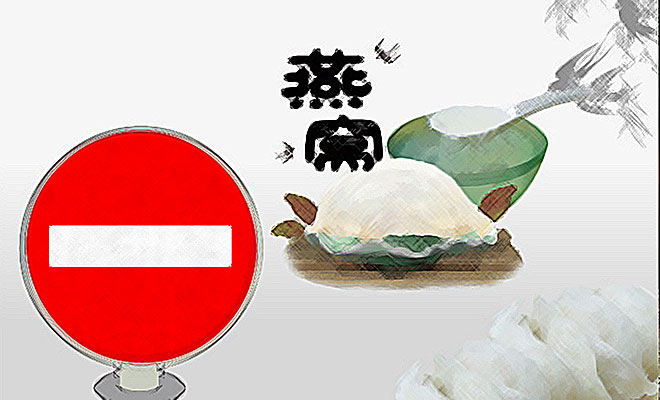Nanjing’s Quarantine and Inspection department of Lukou Airport has issued a warning to travellers regarding the import of bird nests.
On 2nd January, at Nanjing Lukou International Airport, a young tour guide, having just disembarked a flight from Thailand, was pulled into a quarantine inspection room. Wrapped in a latex pillow was a box containing 500 grams of bird nest, found in her bag.
Airport inspection staff have said that it is a matter of the origin of the bird nest that is of concern, following outbreaks of the H5N1 avian flu virus, after which China imposed temporary bans of 90 days on the import of bird nests.
Airport staff have said it “may cause a serious impact on China’s national health and biological safety…passengers are prohibited from carrying bird’s nest into the country and serious cases will be subject to administrative penalties and even criminal liability”.
Since June of 2017, claims that the latest ban had in fact been lifted have popped up in the news, “Some 10,000 swiftlet bird nest entrepreneurs in Malaysia, who were affected by the ban on the export of bird nest to China due to the H5N1 bird flu virus, can all heave a sigh of relief now that the ban has been lifted…“Agriculture and Agro-based Industry Minister, Datuk Seri Ahmad Shabery Cheek said. The ban was lifted as the viral infection had stopped and that the 90-day sanction imposed on the export of bird’s nest to the country was almost up”, wrote Kemaman for the Rakyat Post.
The Financial Review’s Nick Lenaghan highlighted the recent necessity for big brands to streamline imports of bird nests from places such as Indonesia via Australia, due to Australia’s strict inspection rules. “We want to move the raw ingredients into Australia and then process it here with a very minor procedure. We want to get the recognition of Australian quarantine inspection”, said James Liew from Crystal Nest.
Bird nest has been regarded as somewhat of a super health elixir to the Chinese for hundreds of years, banishing colds and, somewhat ironically, the flu. It is said to improve the immune system, is rich in amino acids, which aids in cell regeneration, and contains testosterone and estradiol, which help regulate bodily function.
In the past, the Chinese have used bird nest for internal health, however, now with the importance of beauty and skin, bird nest (with infused gold) is now found in an abundance of beauty products, which range from face creams to serums and face masks.
“Since 2006, only processed bird nests have been allowed into China because of the risks of diseases such as avian flu associated with raw nests”, according to the administration. Figures from the Chinese Academy of Inspection and Quarantine indicate that 21.5 metric tons of processed nests, 58 percent of total import volume, came from Indonesia in 2016. Malaysia was second, with 15.6 tons, or 42 percent. Thailand was added in August this year as another source of nests.









